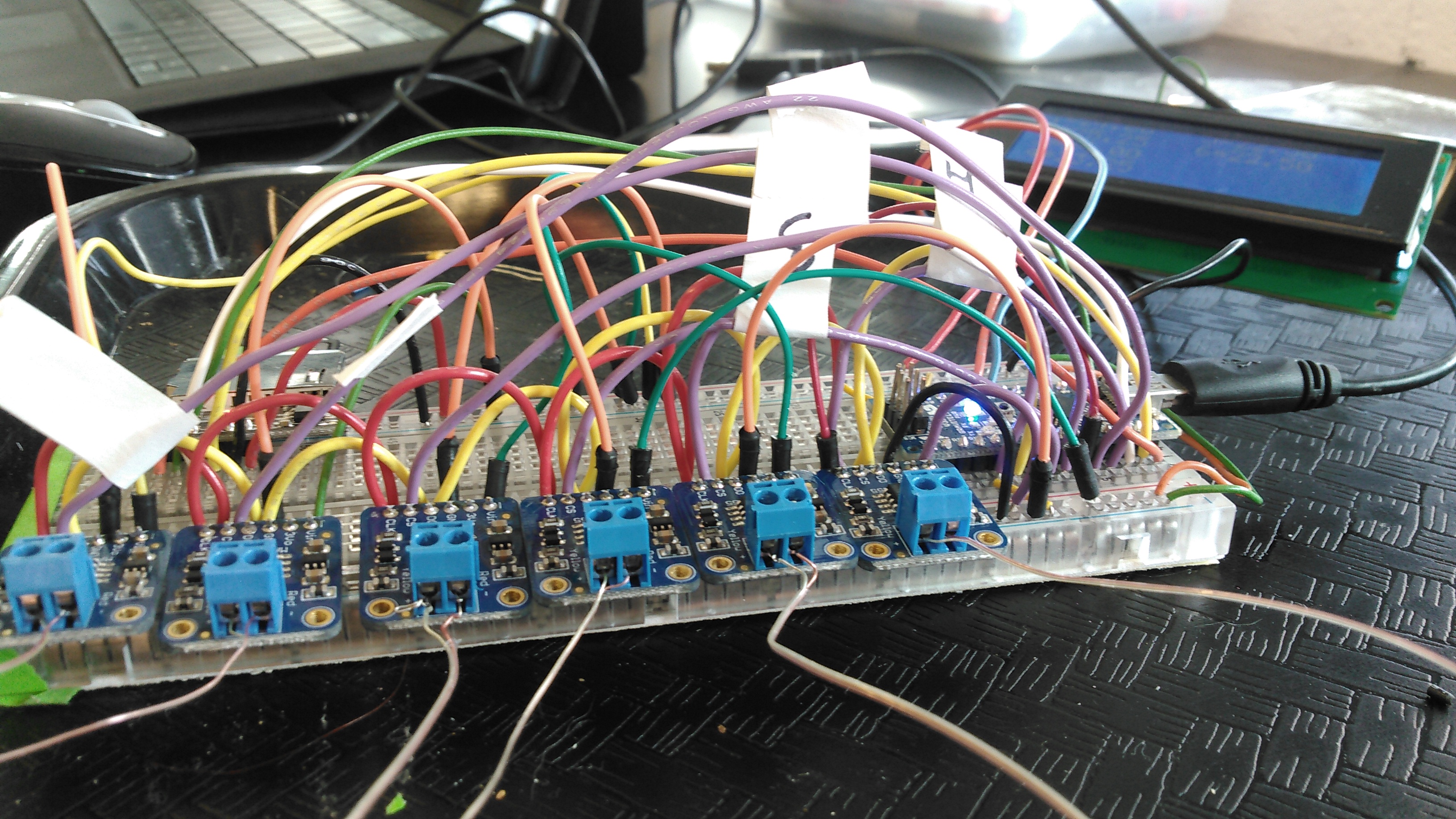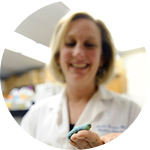About This Project
The leafcutting bee plays a critical role in our society by pollinating wild and cultivated plants and supporting production of seeds, fruits, and vegetables. Synchronization of flower bloom and bee emergence is critical; bees need nectar and plants need pollination. Climate change is increasing climate variability, impacting rhythms of natural events. When Mother Nature gives mixed signals, we aim to understand how bees keep time, using specially engineered clocks!
Ask the Scientists
Join The DiscussionWhat is the context of this research?
Climate change is expected to increase temperature variability and episodes of spring frost. It is projected that mismatches will occur between emerging pollinators and plants that are blooming in the spring. The majority of wild bees are solitary (do not live in a hive) and nest in cavities, although it is largely unknown how emergence is mediated from these cavities. Temperature fluctuations may be a stronger cue than light, however, bees may use light as a cue to synchronize adult emergence if temperatures are misleading. This would be a more reliable cue for synchronizing development, because it is unaffected by climate change. Light patterns have been found to affect emergence rhythms across many insect groups. It is not clear what cues are important for spring emerging bees.
What is the significance of this project?
Pollinator decline is a phenomenon that requires immediate attention. We need to understand the impacts of a changing climate on bee emergence due to their importance to ecosystems and society. Development is a dynamic process that is constantly altered by the environmental conditions. These processes are partly controlled by environmental cues, such as temperature and light patterns which synchronize them with their surroundings. However, very little is known about which aspects of the environment affect emerging bees, as measuring emergence for a population would be very difficult in nature. Understanding how environmental cues control emergence is crucial for understanding the responses of pollinators to climate change. How do bees keep it all straight in a changing world?
What are the goals of the project?
By bridging electrical engineering and biology fields, we can discover phenomena that cannot be recorded in such detail with the human eye alone. For example, we are building incredible clock-like machines that measure when bees emerge for the first time, for thousands of bees in a single experiment. Currently, we would like to continue to develop or "hack" more complicated clocks to gain even more insight into the secret world of developing bees in a changing climate.
We aim to determine if adult emergence is regulated by a circadian rhythm.
We aim to determine how adult emergence is regulated by temperature and light patterns in a changing climate.
We aim to determine how our findings apply to the field.
Budget
The microprocessing event recorder (the "clock") will be built using the Arduino nano and additional parts will be 3D printed. Air soft and metal bbs are needed to signal to the clock when a bee first emerges.
Our model is the most intensively managed solitary bee species in agriculture, thus it's essential we apply our findings to the field. Most critically needed funds will be used to visit the Utah USDA-Agricultural Research Station to train with the experts to apply this knowledge to the field. Loose brood cells of leafcutter bees are purchased from JWM leafcutters by the gallon.
Endorsed by
Meet the Team
Meghan Bennett
It’s exciting to communicate with people of all ages about science and specifically, pollinators; aiming to educate individuals about their biology and importance to society. My passion for outreach has grown into my identity as a scientist and educator. One of the best tools I use is creativity, whether it’s designing experiments or class activities, creative confidence is a character trait I embody.
I began pollinator research as an undergrad, and I was so passionate, that I devoted my PhD dissertation to exploring pollinator development, health, behavior, and physiology in a changing climate. I plan to pursue a career in research on pollinators, because they are critical to society and a passion that’s close to my heart.
Understanding how pollinators will respond to changing climate and what aspects of their surroundings aid or hinder their success is a comprehensive angle for approaching the issue of pollinator decline. How juvenile pollinators develop, and what factors affect adult bee emergence are two perspectives that I find important to consider in the context of a changing climate. Environment greatly affects pollinator development, health, and fitness. Thus, examining effects of temperature fluctuations is a broad approach to solving the issue of pollinator decline. Temperature can affect many aspects of life, such as habitat quality, pollinator health, and plant-pollinator interactions; all hypothesized to be causes of bee population decline. Additionally, my study organism, the alfalfa leafcutting bee, Megachile rotundata is a important pollinator used in commercial farming and gardening.
Additional Information
If you donate $20 or more, you will receive personalized bee art print 11 x 17in, made by Me! (Meg Bennett). Please send your contact information to bwindime@gmail.com
.png)
We are very passionate about giving back to the community and bridging multiple disciplines. Therefore, we aim to continue developing our outreach program teaching middle, high school and undergraduates about Arduino programming and building hardware (below).

Project Backers
- 16Backers
- 101%Funded
- $2,027Total Donations
- $126.69Average Donation

